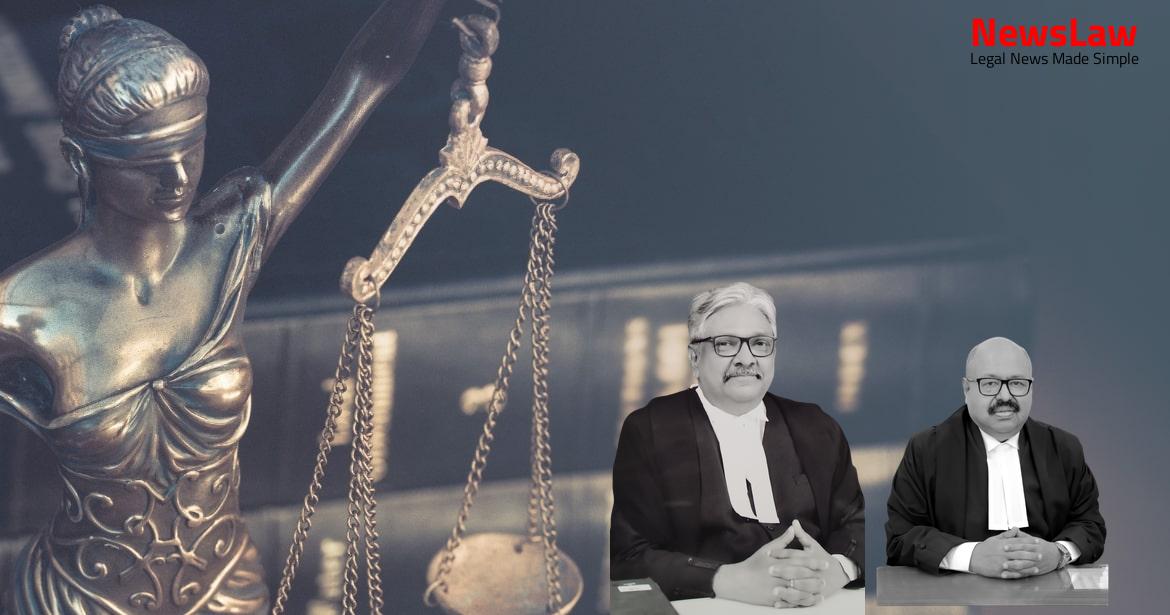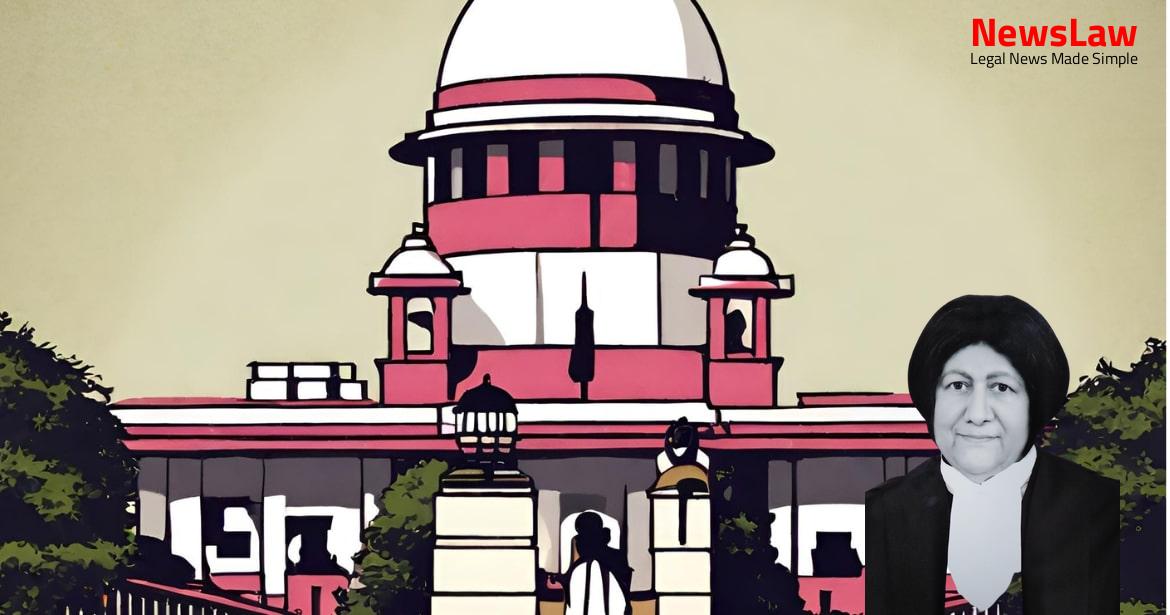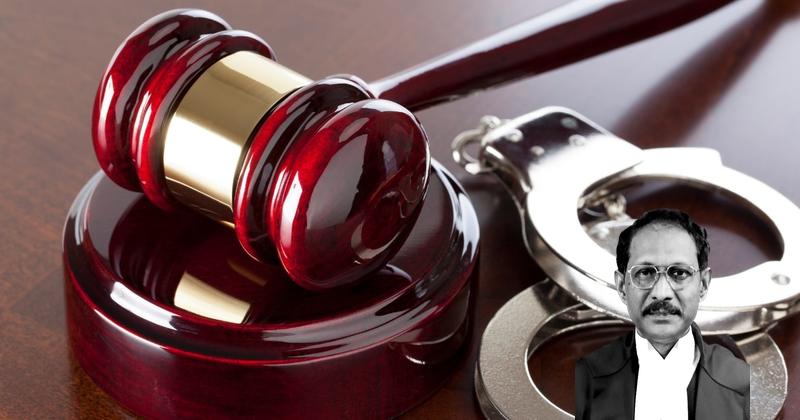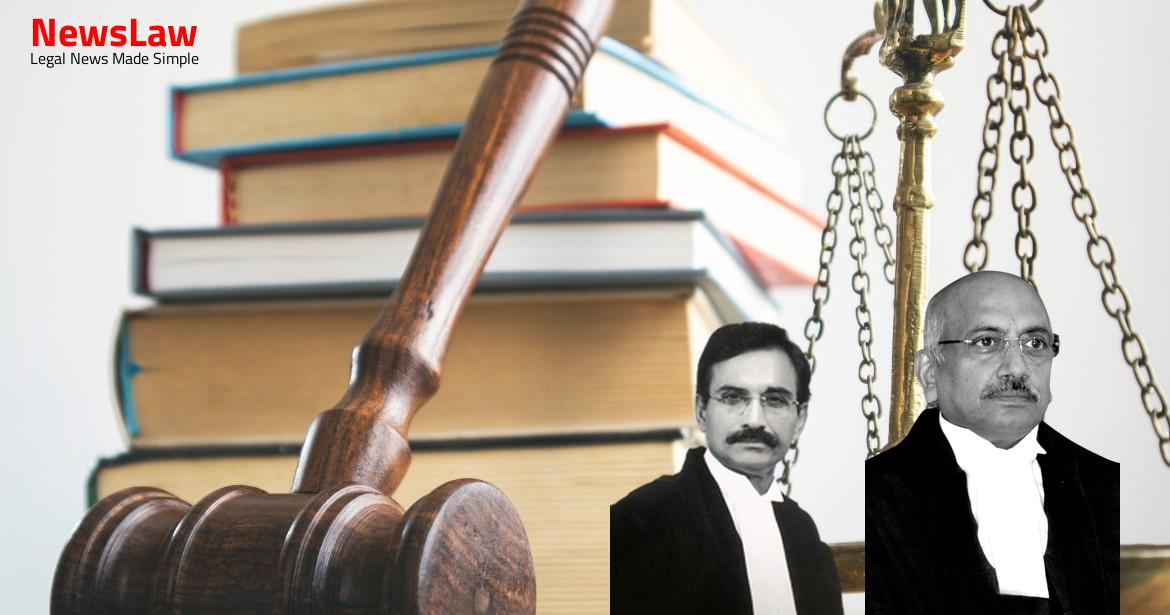In a recent legal case, the court delved into the intricacies of balancing departmental and criminal proceedings. The court emphasized the distinct purposes of each type of proceeding and discussed the differences in standard of proof, inquiry rules, and timing. The court’s analysis sheds light on the challenges and considerations when dealing with simultaneous disciplinary and criminal actions against an individual.
Facts
- Respondent moved a writ petition against the affidavit-in-opposition filed by the appellant(s).
- The suspension of the respondent was revoked on 15 September, 2015.
- The departmental proceedings continued based on a complaint of bribe demands against the respondent.
- The respondent was arrested by the Central Bureau of Investigation on 31 August, 2015, under the Prevention of Corruption Act, 1988.
- An order of suspension was passed against the respondent on 3 August, 2015.
- The respondent’s service was dismissed on 2 March, 2021, after participating in the enquiry.
- The respondent participated in the enquiry and was subsequently dismissed based on the order passed on 29.06.2017 after a judgment of the Single Judge on 10.02.2021.
- The Division Bench has directed that the final order of dismissal of the respondent be stayed until the disposal of the criminal case.
- The order of dismissal will become effective only upon the criminal proceeding resulting in a conviction.
- The Court exercised the power of the Court of Appeal as provided in Order 41 Rule 33.
Also Read: Legal Analysis of Assignment and Ratification in Property Law
Arguments
- Delay in criminal case not a valid ground to delay disciplinary enquiry
- Disciplinary enquiry and criminal trial can proceed simultaneously unless it involves grave nature
- Verdict of acquittal in criminal trial may not affect disciplinary proceedings
- Different principles apply to disciplinary proceedings
- Appellant contends that delaying departmental proceedings for pending criminal trial is not desirable
- Employee compelled to disclose defense in departmental proceedings if delayed
- Appellant argues disciplinary proceedings were not conducted properly
- Order of dismissal not challenged before Division Bench
Also Read: Interpretation of Custody in Contempt of Court Case
Analysis
- Acquittal by a criminal court does not prevent an employer from conducting departmental proceedings as per rules and regulations.
- Criminal and departmental proceedings are distinct and serve different purposes.
- An honorable acquittal in a criminal case may not necessarily impact the disciplinary action against the delinquent officer.
- Differences in standard of proof between criminal trial and disciplinary proceedings should be taken into account.
- The advisability of staying departmental proceedings is a factor, but charges in the criminal case must be grave and serious.
- The disciplinary enquiry should not be unduly delayed, and the standard of proof and inquiry rules differ in criminal and disciplinary cases.
- The High Court did not grant a stay of the disciplinary proceedings but allowed them to continue.
- Order 41 Rule 33 gives the appellate court exceptional power to ensure justice in specific cases.
- The principle is that parallel disciplinary and criminal proceedings should not be held simultaneously to prevent prejudice.
- The High Court’s order keeping the dismissal in abeyance until the criminal trial concludes may not have been justified.
- The respondent revealed his defense by participating in the proceedings, leading to the disciplinary authority dismissing him.
- The appellate court did not challenge the dismissal order, leading to the disposal of the writ petition by the Single Judge.
- The application of the principles regarding simultaneous proceedings should be based on the unique facts of each case.
- The impugned judgment cannot be sustained.
- The order of dismissal was not specifically the subject matter of challenge.
- It is not a fit case where the High Court could have supported the directions with reference to Order 41 Rule 33.
Also Read: NGT Jurisdiction and High Courts’ Role
Decision
- The appeal has been allowed and the impugned judgment has been set aside.
- All pending applications have been disposed of without any order as to costs.
- The respondent retains the right to challenge the disciplinary proceeding in any competent forum.
- All remedies and contentions of the respondent in this regard are left open.
Case Title: EASTERN COALFIELDS LIMITED Vs. RABINDRA KUMAR BHARTI (2022 INSC 405)
Case Number: C.A. No.-002794-002794 / 2022



